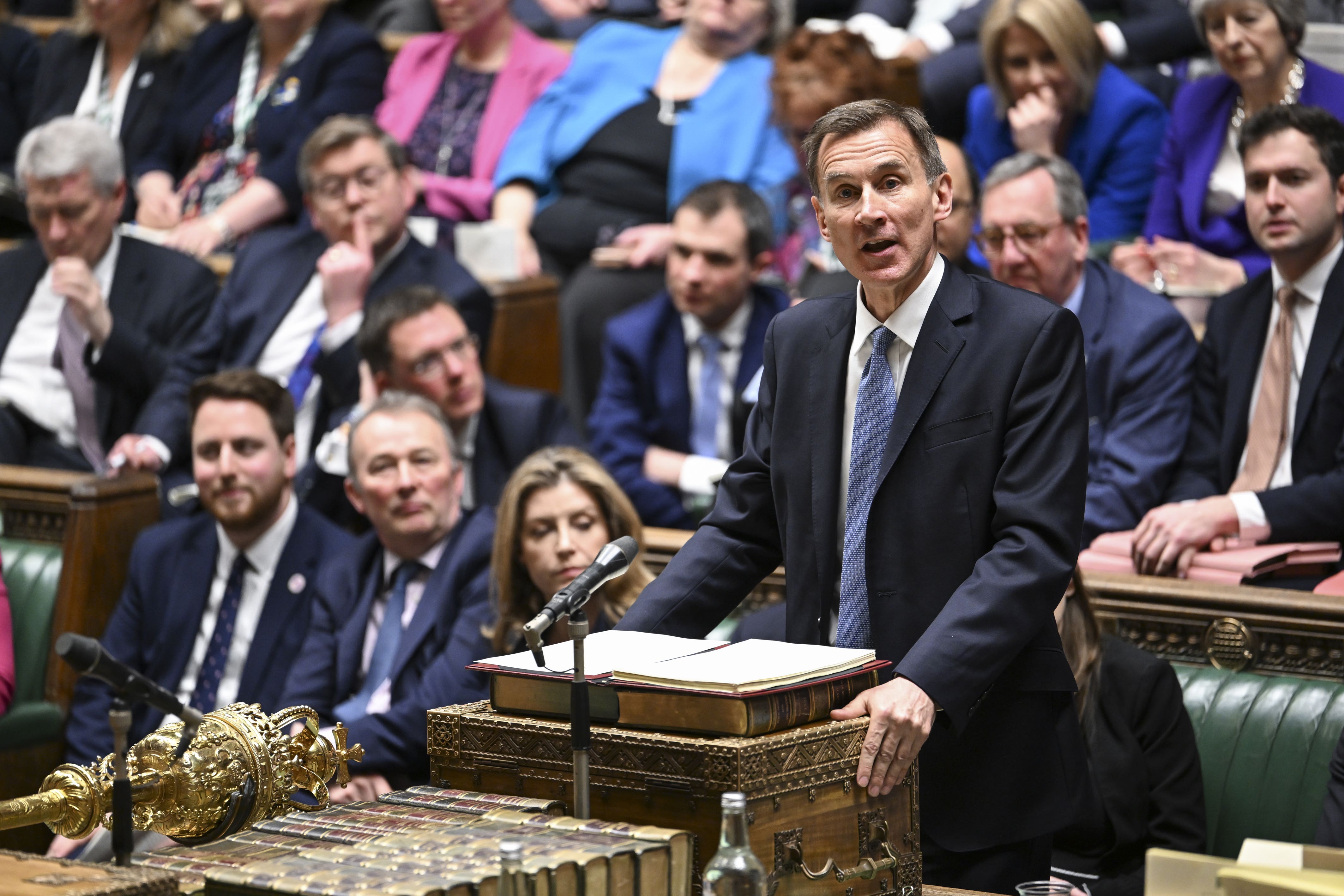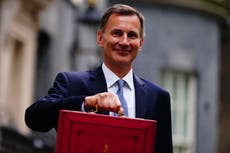The chancellor hasn’t allocated enough money to make the key goal – growth – possible
There is very little to give confidence that the measures introduced would do much to bolster investment, productivity and prosperity, writes Vicky Pryce


There is very little in Jeremy Hunt’s Budget to give confidence about the economy moving into a sustainable growth path or that the measures introduced would do much to bolster investment, productivity and prosperity.
Or, for that matter, much to prevent a further sharp drop in households’ real disposable incomes as stealth taxes bite – except the obvious fact that inflation will fall, due to energy prices having come down considerably in recent months.
In my view, the encouragement of moving people from early retirement back into work will have little impact on the numbers returning and the likely impact of the increase of the pension lifetime allowance will only benefit a small part of the population: the highest paid.
For the average household, the only real positive is the continuation of the electricity price guarantee at current levels for a further three months. And for parents – or people intending to become parents – what is welcome is the planned expansion in state-funded childcare to start, eventually, from the age of nine months. But this will take time to be fully operative – and whether enough funding will be available to make it happen remains unclear. In sum, if growth finally resumes, the Budget measures themselves will probably have had very little to do with it.
I am writing this against the background of real concern over whether the world is on the cusp of another financial crisis following the collapse of the Silicon Valley Bank, and the sale of its UK subsidiary to HSBC for just £1.
But as we economists would say, let’s assume all that away. All things being equal, there is no doubt that we had better news for the economy coming out from the budget in the accompanying analysis by the independent Office for Budget Responsibility (OBR).
We must all remember the panic that developed after the OBR was initially shunned by Liz Truss and her then-chancellor back in the mini-Budget of 23 September; and we must also recall how much of a retreat then followed with many of the measures – which had not had OBR scrutiny – being reversed, in large by her second (and now Rishi Sunak’s current) chancellor Jeremy Hunt.
But the OBR is not infallible. It has changed its short-term forecast quite significantly. We will now avoid a technical recession – two-quarters of consecutive drop in GDP. But the economy will still contract this year by 0.2 per cent (though that will be a lot less than the 1.4 per cent drop forecast last November).
There are two things to point out here:
First, that the chancellor has been lucky that international inflation is slowing down, with energy prices falling sharply. He is also lucky that many supply chain issues – except in fruit and vegetables, for reasons that appear to be peculiar to the UK – have eased.
Inflation is forecast by the OBR to fall to 2.9 per cent by the end of the year, more than halving from the near-11 per cent we saw at the end of 2022. Some of the cost-of-living pressures will ease. We see similar trends in other OECD nations. We are not unique, except that inflation here is falling less slowly due in part to worse labour supply constraints.
The second thing to note is that consumers, though hit by the worst drop in real living standards in 14 years, are using their savings to spend more on entertainment, hospitality and travel, alleviating to some extent the huge pressures these sectors have been under during Covid and beyond. Surveys suggest that should be considered a net positive.
A stronger economy means that the government has more to play with. Borrowing this year is expected to have been some £25bn less than forecast in November. Looking ahead, there will be extra revenues from the increase in corporation tax from 19 per cent to 25 per cent beginning in April.
Income tax take will also rise, helped in part by the continued freeze of personal allowances and higher wages. This will remain true even if unemployment increases somewhat in the coming year.
Overall, this allows the chancellor – through welcome giveaways such as freezing of households’ energy price guarantee for the next three months – 100 per cent capital allowances for the next three years. It also allows money for new industrial zones and extended childcare support.
But to take us back full circle: what about long-term growth? Productivity remains low, and we have lost many people from the workforce causing severe labour shortages and extra costs. There seems to be not enough money allocated for a proper industrial strategy, and most of the announced measures will take time to have an effect.
In the meantime, the energy price support to firms is reducing, and insolvencies have been rising. Some of the forecasts are subject to huge uncertainty. Persistently lower energy prices as hostilities in Ukraine and geopolitical tensions escalate cannot be guaranteed. There will be pressure to meet more of the public sector pay demands.
In the meantime, political pressure to cut taxes in the next budget in anticipation of the upcoming general election is bound to grow. The Treasury must be conscious of this; why else did we see the postponement of part of the planned HS2 works “to balance the books”? Moreover, all of this will be thrown out of the window if a financial crisis is not nipped in the bud, causing renewed demands for public funds.
Will all that mean that the fiscal rules will not be met? Well, in general, this is probably the least of our worries. It is likely that they will all be reset anyway, by whoever wins the next election.




Join our commenting forum
Join thought-provoking conversations, follow other Independent readers and see their replies